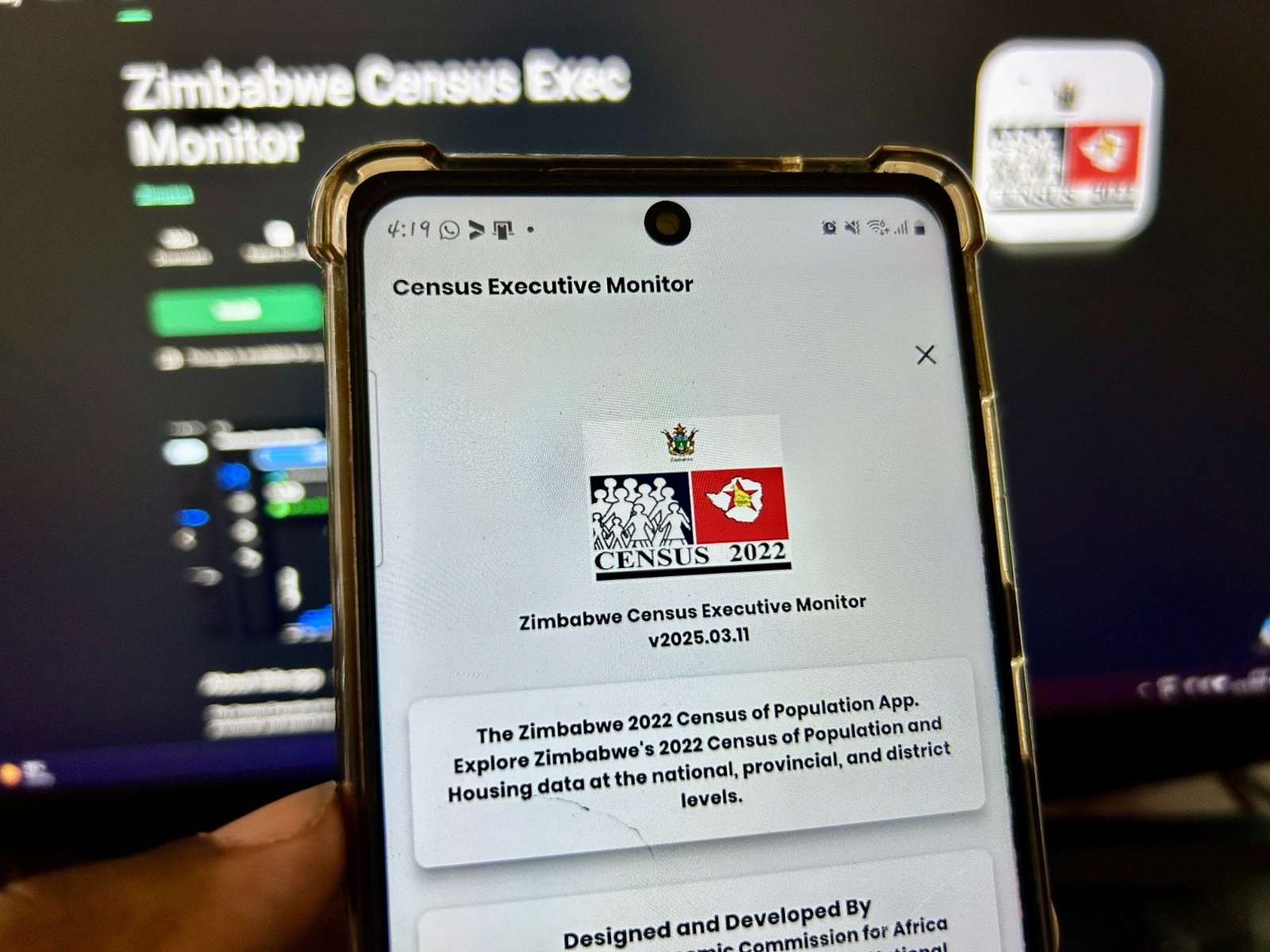 It is noble that the Ministry of Information and Communication Technology (MICT) is drafting a national ICT policy document. But what will this policy achieve? Government policy documents run the same risk as corporate strategy documents. Management invests a lot of time and money into the process of consultation, drafting and formulation including creative offsite sessions, only to see the glossy reports produced from this effort tucked away in some obscure basement only to be dusted off when the next strategy formulation process gets under way.
It is noble that the Ministry of Information and Communication Technology (MICT) is drafting a national ICT policy document. But what will this policy achieve? Government policy documents run the same risk as corporate strategy documents. Management invests a lot of time and money into the process of consultation, drafting and formulation including creative offsite sessions, only to see the glossy reports produced from this effort tucked away in some obscure basement only to be dusted off when the next strategy formulation process gets under way.
Additionally government policy is subject to the whims of the electoral cycle and the politics of the day, a fact which is even more pertinent in Zimbabwe’s current GPA dispensation.
I believe a guiding principle for the Ministry in this process should be the creation of an Information Society as a means of creating sustained national competitive advantage and economic prosperity. By this I mean that our economy’s productive base should largely be derived from knowledge work rather than from extractive industries whose resources are finite and where it’s difficult to obtain sustainable competitive advantage. If a country has better programmers or teachers it’s easier to derive a sustained economic advantage than if it has more platinum reserves because platinum reserves are finite and Zimbabwean platinum is qualitatively the same as South African or Russian platinum. I’m also cognisant that MICT is more of a facilitative ministry rather than an operational one and would need to work closely with other ministries to make these proposals bear fruit.
Open Data Initiative
The Ministry should push for an open data initiative that encompasses all government ministries and departments. For consumers of government information and services this will improve access to government information. For the service provider it represents a more efficient and effective method of delivering a huge chunk of routine information. Other benefits should include the contracting of local IT companies and service providers to assist the ministry in implementation. Solutions can be derived from the FOSS community where numerous enterprise solutions such as LAMP, Hadoop, WIMPY Cores etc are available. The Ministry can then encourage software developers to make apps for the data now available much like the United Nations and World Bank (the World Bank has referred to itself as the Data Bank) and progressive governments such as in Kenya have done. The net effect of this initiative is to democratise and devolve government information and services and at the same time investing and generating jobs in the local IT industry.
Universal Internet Access
Firstly, every Zimbabwean should have Internet access, minimally in the form of a handset with a minimum data bundle per month. The government would commit to ensuring that every citizen has access to a mobile phone handset and Internet access in the following form:
- Mobile Handset for example an entry level IDEOS handset retails for $80
- 1 GB of data/ month ($20/month – estimate)
The amount of data is more illustrative and suggestive rather than indicative of what is necessary per month. Access by mobile phone is indicative of accepting the reality on the ground. The government can achieve this by directing the Postal and Telecommunications Regulatory Authority of Zimbabwe (POTRAZ) which operates the Universal Service Fund (USF) and according to their website collects “2% of annual revenue levied on all licensed operators” If you do the math they are collecting serious revenue.
The purposes of the fund amongst others is given as:
- Assist in training of persons in the provision of Postal and Telecommunication services.
- Promote and contribute towards research and development in the field of Postal and Telecommunication services.
- To encourage and facilitate the transfer of telecommunication technology.”
Using the 2% figure, Econet alone for its last financial year would have contributed $12.2M of annual revenues of $611 million. Econet in its half year unaudited results for August 2011 (PDF) noted that “The Group paid over $43,6 million in corporate taxes, levies and other statutory payments to Government and its ancillary bodies”. Universal Internet access will encourage further uptake of data consumption by mobile phone users and fulfil POTRAZ’s purpose “To encourage and facilitate the transfer of telecommunications technology.” POTRAZ operates under the Ministry of Transport and Infrastructural Development headed by Minister Nicholas Goche (Zanu PF).
Facilitating e-Commerce
To encourage the growth of e-commerce the Ministry can propose incentives such lower VAT for e-commerce transactions. Value Added Tax (VAT) is administered under the Sales Tax Act and by ZIMRA (Zimbabwe Revenue Authority) under the Ministry of Finance headed by Minister Tendai Biti (MDC-T). Currently VAT is set at 15% so a figure of say 10% for e-commerce transactions would prove to be attractive and spur investment in e-transaction technology and adoption.
Skills Investment
Funds from the POTRAZ Universal Fund can also be used in the same manner as the Zimbabwe Manpower Development Fund (ZIMDEF) which levies industry 1% in terms of the Manpower Planning and Development Act through Statutory Instruments (74 and 392 of 1999). ZIMDEF though it’s National Manpower Advisory Council (NAMACO) program identifies critical skills and provides training for the benefit of the country’s industry. In the same vein funds from the Universal Service Fund can be used to provide research grants for graduate students in science, engineering and software development. The focus being the development of intellectual property. The metric that most countries pay attention to is patents filed as this is the best indicator of ideas with commercial potential generated. The program would also extend to the tenure of professors at state institutions in the disciplines cited before, where awarding of tenure is prioritised for those who have filed patents.
The co-relation between research and development and economic growth is well established in classical economics. Robert Solow was awarded the 1987 Nobel Prize in economics for his contribution to economic theory in this regard. Sollow showed that technical change, both improved technology and improved education in the work force was chiefly responsible for long-term growth, much more so than increases in labour or capital.
Likewise the government should incentivise the mobile networks to conduct R&D. A good example of this as The Economist notes is Huawei which provides employees with bonuses of 10,000-100,000 yuan ($1,500-$15,000) for patents filed. In 2008 Huawei filed more international patents than any other firm in the world.
The MICT should conduct Patent Workshops to teach and familiarise and encourage students to file patents for innovative ideas. the Patent System and the process of filing for a patent.
A caveat though is that though patent registration is an important source of information on R&D activities with direct economic value, It should be noted that R&D based growth models and patent registrations are in themselves not sufficient to capture the full range of innovation and R&D activities but they are a strong indicator. I’m also not a great of software patents tend not to meet test of a patent that it be “non-obvious, novel, and unique innovation” and most companies tend to use the patents to stifle innovation.
This kind of investment in IP can lead to a proliferation of developments similar to the DR Congo designed tablet – Way-C (original site is in French) and the Cardiopad from Cameroon. Though the Way-C was designed in Congo, it was assembled in China and a significant component of its IP is also external. The Chinese themselves also realise that they need to derive more revenue from home grown IP (rather than from the US, Japan etc) and are investing accordingly.
As a benchmark Israel spends about 5% of its GDP on R&D, the highest among OECD countries and more than double the OECD average of 2.3%. The result is that other than China, Israel has the highest number of companies listed on the tech heavy NASDAQ. Using the 2.3% figure means Zimbabwe would be looking at annual R&D expenditure of $184 million (based on nominal GDP of $8 billion). If you look at the last budget presented by the Ministry of Finance this is a significant allocation. The total budget of $2.4 billion with the top three allocations being $469M, $258M and $198M for the Ministries of Education, Sports, Arts and Culture; Health & Child Welfare and Defence respectively. MICT received $7.6 million.
80% of the budgeted expenditure was for salaries. This is why looking dedicating the Universal Service Fund for this purpose would make sense.
Some Blue Sky Ideas
Close Zimpost
Shut down the postal service and convert all post offices into Internet café’s. Huge Facilities like the sorting office, Harare Central Post Office, which for all practical purposes is already repurposed, can also be used as start-up incubators. Utility bills will go digital, further consolidating the adoption of digital products and processes.
An eReader for Every Child
Digitise all standard school textbooks like the New Ventures in series, Bostock & Chandler (Mathematics), Frank Wood (Accounts), Richard Lipsey (Economics) etc. This will involve negotiating with publishers and copyright owners to digitise and pay royalty for each copy sold. The eReader model should in my estimate be cheaper in the longer term for parents than the current model were parents/schools buy physical textbooks
So in point form these suggestions can be summarised as follows: Open Data Initiative, Facilitating e-Commerce, Skills Investment, Universal Internet Access, Close Zimpost and An eReader for Every Child. The last two are really blue sky ideas that are long term and logistics heavy but, in my view certainly worth looking at seriously.
Image Credit: MICT, Hon. Minister Nelson Chamisa













Comments
18 responses
I may not agree with everything, agree in part on others…totally agree on some issues, but shutting down the postal services? You’ve got to be kidding!
You do realise that it is a huge chunk of a civil service? There are jobs there… And that the cities, where most of the affluent and technologically literate exist, represent a minute fraction of the entire populace?
@google-d03403cbf1bc4859579b3803b3876b6d:disqus , @2ea805747d7d48026b16e63bb985556f:disqus , @99cc7ce3550f7e6b3e22161a5bcdb561:disqus
The idea about closing Zimpost I think is worth considering seriously. I’m starting from the perspective that what service is the entity providing that cannot be efficiently and effectively provided by private players. There was a time when the mandate of the post office was to ensure that marginal areas and users would have access to some communication sevices and that time in my view is gone. Mobile phones have replaced the need for a post office. The point you raise @99cc7ce3550f7e6b3e22161a5bcdb561:disqus about jobs is valid, but should we keep jobs in a dying industry when we can create more jobs in a new industry? @Aurther that repurposed Zimpost does make sense. About the Internet cafes, what do we do with all that real estate? Surely even in a world dominated by notebooks, smartphones etc there’s still a place for the PC?
takes bold steps to reach the apex quickly….I second realigning all that zimpost real estate
i dont think closing Zimpost is a good idea, maybe revamping it and improving their services
I agree, closing Zimpost will work against ecommerce. Zimpost is needed for affordable shipping just like USPS (US postal service) in the USA. In fact government can reduce tariffs for any ecommerce related shipments through Zimpost at the same time securing ongoing business for this struggling entity. Setting up Internet cafe’s will actually be going backward as the future of internet is firmly mobile i.e notebooks, smartphones, tablets
I agree with you on most of the issues you have touched. Except shutting down Zimpost. It is an integral part of any country. On the issue of internet access. I think they should make wifi access points across the cities, like many countries have. The same e-learning methods mentioned in the last part of the article could also apply to Universities, they can take the open courseware route such as MIT Opencourseware, Stanford etc…
Most of submissions are quite sound. However rather that focus on funding R&D professors and students, encourage funding of private sector researchers. I am one such research who funds his R&D and I know of a number of other brilliant R&D innitiatives that are taking place outside academia. There is too much focus on Universities and very little for private sector R&D. The available innovation funding seems to focus on quick wins rather than long term, commercilly risky but potentially lucrative R &D. Thus the area that Government can step in.
Some valid points raised.
Following the Cricket saga, I had to read your article twice.
I disagree with many of your suggestions. I am happy they
are only suggestions.
I don’t k now how you arrived at this conclusion, but anyway,
it is just a suggestion.
You claim platinum is finite, well, so is human life. Life
expectancy in Zimbabwe is less than 40, far much less than the life span of platinum
reserves in Zimbabwe, excluding coal at Hwange which will take 5000 years to be
exhausted. That platinum and coal is located within the borders of Zimbabwe.
You cannot physically take it away without employing locals. Therefore, locals
will always have jobs in the mining sector as long as the minerals are
available.
Better programmers and teachers mean nothing. Many educated Zimbabweans,
many, left Zimbabwe for other countries. South Africa alone reportedly has 3 million Zimbos.
A country can have sustained economic advantage if it has
exploitable natural resources like platinum, unlike programmers who can leave
the country as soon as they graduate.
Platinum can be extracted even by better paid workers, and
many platinum and diamond mines in Zimbabwe are paying very good salaries,
depending on education and job.
Your analysis, in my opinion, is very wrong.
You’ve gat to be kidding!
In South Korea broadband is completely free and the entire country
is covered. Not only that but internet-enabled phones got for even less than
the US$80 you suggest. US$80 is a lot of money to Zimbabweans, and many can
actually buy a internet-enabled phone for half that price. So why spend US$80
on the phone and even $20 per month on broadband? Do you even know how much
pensioners get? Many get US$20 form NSSA a month! So $20 broadband for them and
their dependents is totally unrealistic.
Since you said it’s a suggestion…
Zimpost does a lot for Zimbabwe and obviously you have
little appreciation of its massive role in facilitating business and
communications within the country.
Zimpost has post offices in rural areas which have high
utility value for people there, 75% of the population. All those people would
rather have a Post Office than a internet café.
And if you shut down Zimpost, then who do you want to
deliver your local mail or parcels from overseas, Swift?
Right now it costs US$6 to send 20 gram mail via Swift and
just $1 or less via Zimpost.
Many people would also rather hand in paper CVs than send
email.
Even Amazon you so love would be nowhere without the USPS
(US Postal Service).
Zimbabwe also has treaties etc. with other countries, whole
world, for postal services.
Your suggestion is impractical
and even self-defeating in so far as e-commerce is concerned.
In practice, evidence indicates that investment in HR (i.e. education and training) produces higher returns than on resources. The evidence is Africa. How many resources have we got. Finland and Singapore have nothing compared to what Zimbabwe (and Africa) has. However evidence shows that these countries (and many more that have invested in HR) have a far higher standard of living than us. Look at the size of the IP industry (of which Africa does not feature) and you will understand the importance of HR. Nigeria has abundant oil but apparently all the advanced maintenance of the plants there is carried out by non-Africans. The reason why programmers and other resources leave their borders is related to poor management policies, which are directly related to poor manpower skills in planning and understanding political economies. With abundant resources, the same poor policies will see to it that these resources never contribute to uplifting livelihoods within the borders where they are located. This leads to more HR skills flight. So on that one, I think Gondo has more demonstrable evidence to support his position. Yours has theoretic merit (and so has Gondo’s) but in practice, Gondo’s is easy to demonstrate.
Thanks for the input. couldn’t agree more. More and more evidence actually shows that extreme natural resources (Nigeria style) actually more often cause economic regression than growth, a resource curse for sure.
Thanks Prosper for reading the article twice! The point I make about universal Internet access may sound rather quixotic but I think it’s not as far fetched as it seems at first blush. The provision of basic access is a service that in my view can be subsidised by the government using resources from the USF. The end user is not paying for this. The thinking behind this is that once you have a Internet enable device in the hands of every Zimbabwean , that in turn encourages the whole ICT ecosystem to invest more in providing services and products. The issue about natural resources and human capital is really about increasing the productivity of the economy. You actually make my case better when you point to the educated Zimbabweans who have left. Imagine if those medical, IT, engineering, accounting, education, science, management professionals where contributing to Zim’s GDP. If you look at a country like Israel which basically has no natural resources. IMF stats show that annually Israel exports circa US$30 billion of technology products that’s the same as Australia earns from it annual iron ore exports. Impractical in my view is what you accept to be impractical……
The point is that THE EXPERT LABOUR YOU TALK ABOUT IS NOT
CONTRIBUTING THAT MUCH TO ZIMBABWE’S DEVELOPMENT AND ECONOMIC GROWTH COMPARED
TO IF ALL THOSE FOLKS WERE HERE!
You yourself actually support my point. I don’t have to
imagine anything, that is the reality.
You also do not increase productivity by ignoring developing/investing
in the mining sector and simply focusing on just the skills.
The human capital you talk about has to be applied to the
industries that require those skills. But when those skills leave the economy
as soon as they are developed, then what sustainable advantage is there?
Now, even if they leave, the coal still remains and Hwange
has employed Zimbabweans even when the economy went to the dogs, whereas your
programmers, IT specialists etc. left and in droves.
And when those skills left Zimbabwe, did they improve
productivity?
They did not. They did nothing.
No offence but your analysis is flawed. It’s like comparing the economic
contribution of agriculture to manufacturing, and at different eras, e.g. in
Rhodesia and in Zimbabwe. It makes some sense but does not inflict justice in
your argument. You could also say Australia exports US$30 billion of iron ore
and Israel doesn’t.
Israel and Australia are completely different countries with
completely different economies, resources, and structures.
Qatar’s people enjoy free healthcare because the country
exports lots of oil, yet in Nigeria the situation is different.
How much money a country makes depends on its utilization of
its resources, as well as the quantity and quality of inputs available to it, and
as I have said before, labour is very fluid to a point where you cannot close
borders to university graduates and experienced workers to stop them from
leaving Zimbabwe for South Africa. Now, with mines and natural resources, you
can’t move Zimbabwe’s mineral reserves to the UK as easily as anyone can get on
board Air Zimbabwe and land in the UK.
The fact that those mineral reserves are located in Zimbabwe
means Zimbabweans in Zimbabwe will always have the opportunity to work on them.
A university graduate on the other hand can be educated in Zimbabwe
and immediately board South African Airways to work in South Africa to Zimbabwe’s
disadvantage.
The benefits you talk about therefore will not be realised.
And just because a country is exporting US$30 billion in
technology products does not mean a country like Zimbabwe should shut down Zimposts
in order to force electronic commerce like happens in the US.
Does Israel invest the same as Australia in R&D. Does
Australia have infrastructure etc that would support technology exports.
I love technology, but I do not believe in its focus to the
exclusion of other things that already better the lives of the people more than
the technology itself can.
Human life is something economists never consider and economists
simply count people as statistics. Even if technology products should have higher
value added, one person or even thousands employed by mines as well as
supporting industries means that those works have an income to live on. And they
have money to pay for water, electricity, clothing, indirectly asupport other
industries and drive the economy forward.
It would be illogical to shut down mines and just focus on
technology. If you must know, the same tech products are made with mined
metals. Rather than suggest closing mines, you should be talking of increased
integration of efficient technology and industry.
In all countries, economic development is a process and not
an imposed. In the US, the car came in and competed head on with the whip and
buggy. Only until the car was a danger to the horse was the horse taken off the
road. Nokia even had fixed telephones in its home country, but everyone4 got to
have a phone through evolutionary processes and not by dictating the ban of
phones. Even in the US they still have public phones. Just because T-Mobile has
a wireless network does not mean the existing infrastructure has to be destroyed
so everyone has to be on mobile.
This is what you said:
i disagree with you on closing. the other issue that you might need to add making it easier to register .co.zw extension and most of us end up opting for .com domain extension because they are available and cheaper
.co.zw registration need to be put in the hands of a secretariat who are at work all the time. 5us/year per domain i think its a lot of money for all domains in zimbabwe and that makes me believe we are being taken for a ride by the two guys running .co.zw domains at their own spare time, when we are actually paying for the same domains
What two guys? Are you aware of the existence of ZISPA? Are you aware of its rotating responsibilities?
Get your facts right!
Interesting ideas put forward but probably a bit far fetched for a Zimbabwean government at least in the present political climate.
Open Data is every developer’s dream but that will only be possible with a leadership that is open to scrutiny. This OD initiative is undoubtedly gathering momentum in the developed world but at the same time it can open a whole can of worms.
Universal Internet Access – noble idea but remember we are talking about a government that has failed to provide basic free education for all.
I salute Senator Coltart and Minister Chamisa on their efforts in their respective capacities. In particular how they have engaged the general public through social media.
[…] of the draft policy, some in line with cyber security that needed to be revised. After years of recommendations and consultations with stakeholders, our ICT Policy is being redrafted, […]